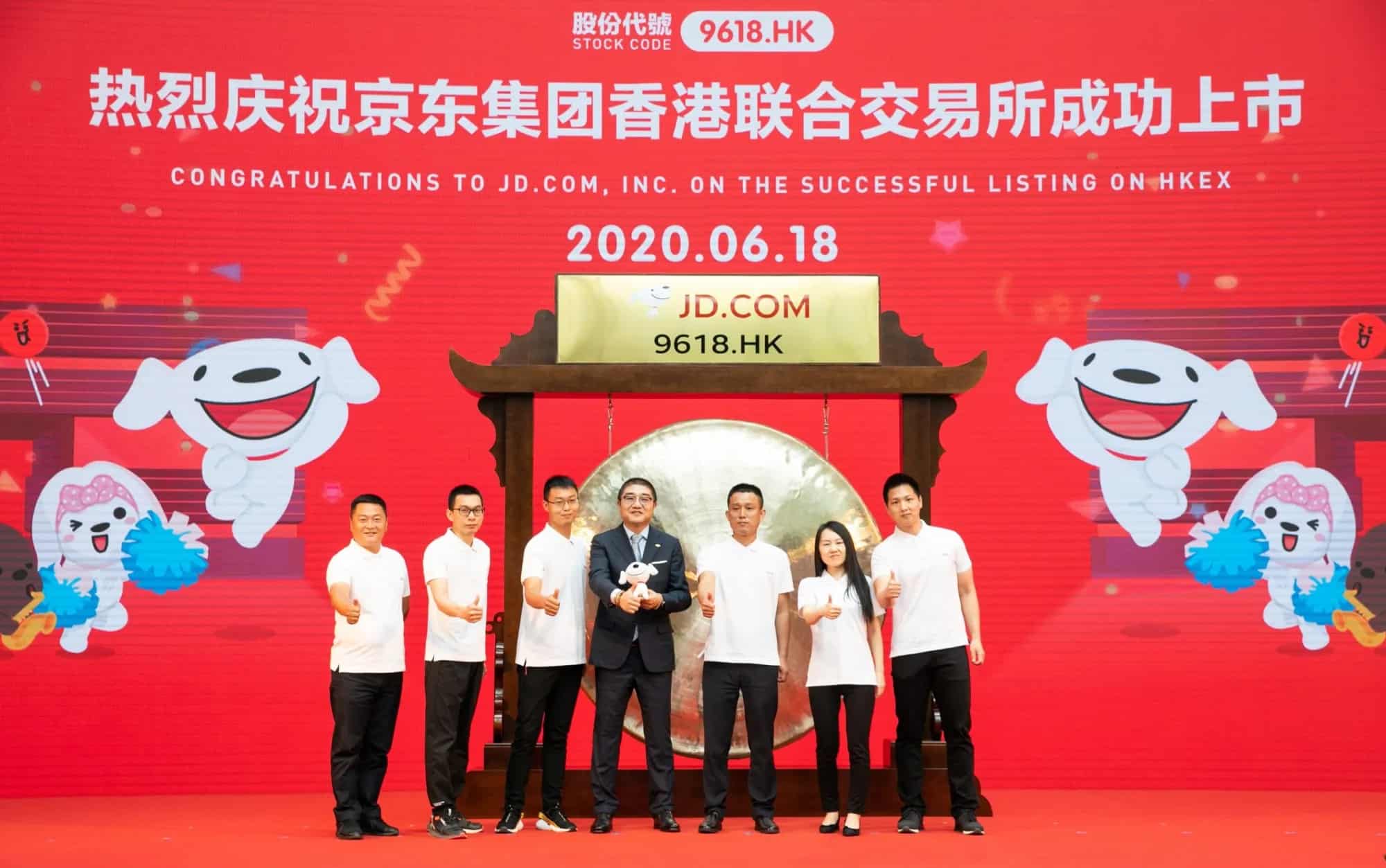Good evening. Everyone’s talking about the “chip wars” underway between the U.S. and China. So we’re leading off this week with a cover story that examines one of the hottest autonomous vehicle startups — a company called Pony.ai — and how it’s trying to navigate the challenge of building and sourcing chips from both the U.S. and China. We’re also including a story from our archive that is still very relevant today on how a single machine from the Netherlands could catapult China to the leading edge of the semiconductor industry. Elsewhere, we have an op-ed from Yu Yongding on China’s fiscal challenges; an interview with Chris Miller on the past, present and future of the ‘chip war’; an op-ed from Robert L. Kuhn on the ‘contrarian’s thesis’ about China’s new leaders; and a round-up of the best new China books. If you’re not already a paid subscriber to The Wire, please sign up here.
Want this emailed directly to your inbox? Sign up to receive our free newsletter.
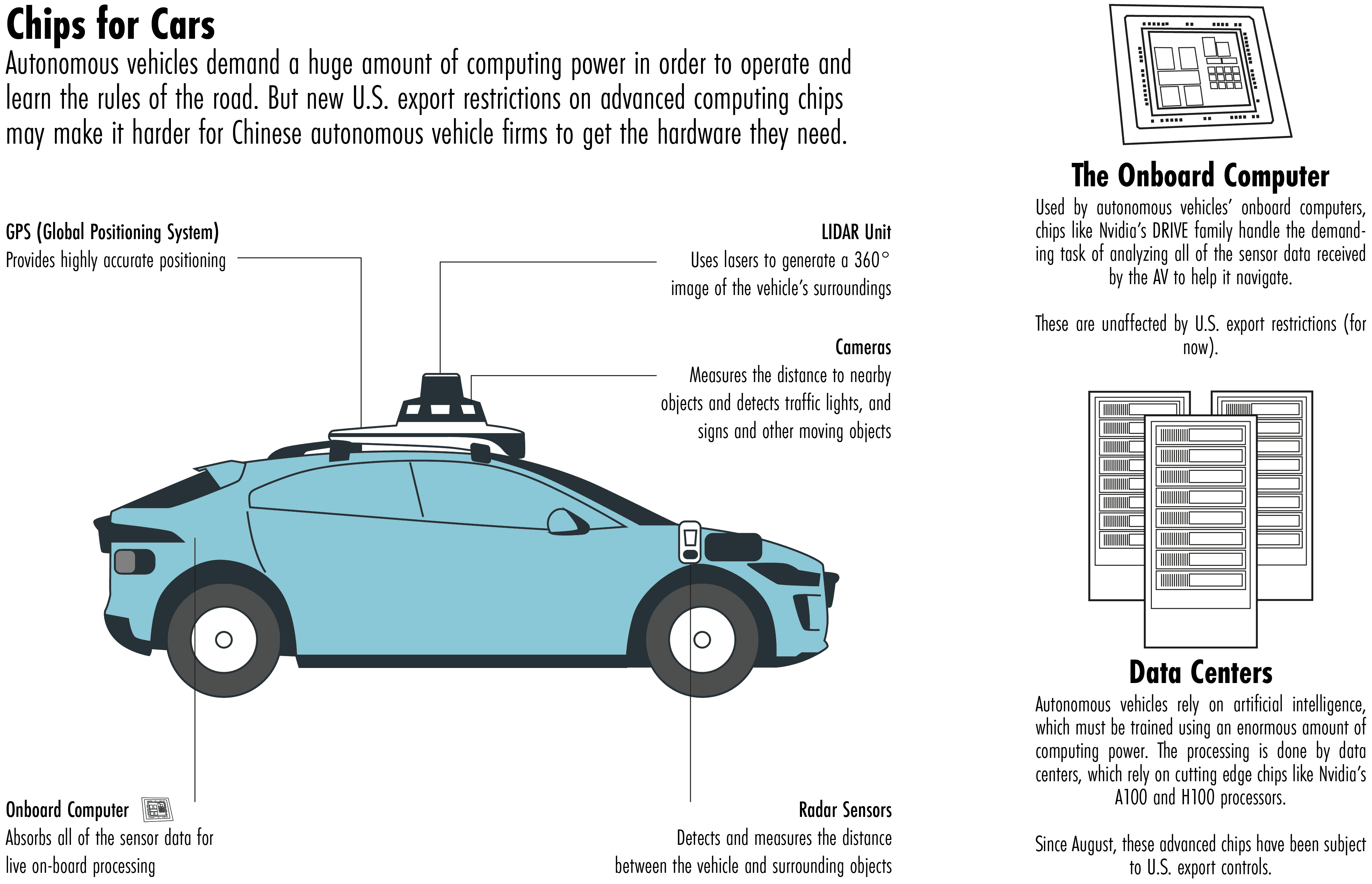
Reining in Pony.ai?
Pony.ai, an autonomous vehicle (AV) startup founded in California by two prodigious Chinese-born engineers, is caught in the crossfire of the Biden administration’s expansive new chip export controls. This week, infographics by Eliot Chen look at the self-driving car startup’s emergence and warm welcome in China, and the challenges it faces amid U.S.-China technological decoupling.
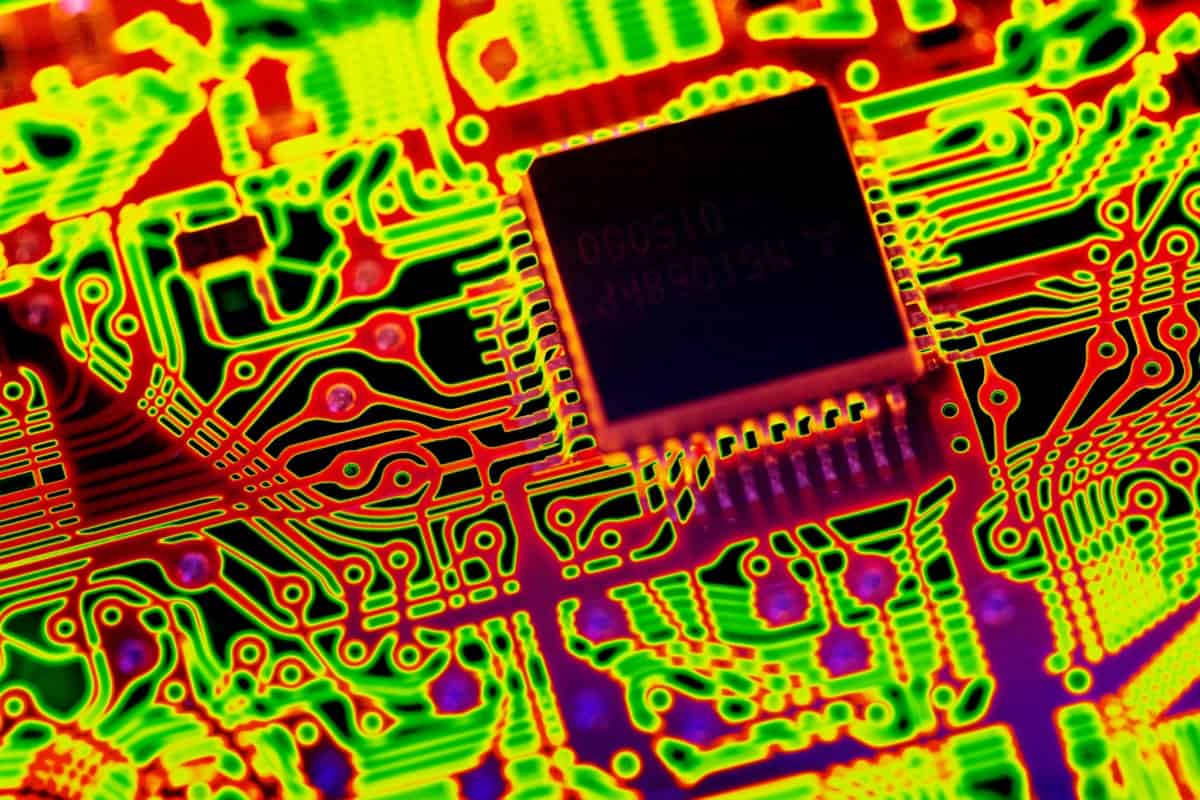
The Chip Choke Point
Not many people have heard of ASML, but it is one of the most valuable tech companies in Europe. The Dutch firm produces the only machine in the world for manufacturing cutting edge semiconductor chips — which places it squarely in the middle of the U.S.-China tech battle. As Tim De Chant reported in this piece from early last year, the technology and engineering prowess at the center of ASML’s machine borders on magic. If China’s chip champions could secure it, it could catapult China to the leading edge of the semiconductor industry. But that’s a big ‘if.’

China’s Fiscal Challenges
China’s government is right to respond to below-target growth with expansionary fiscal policy, especially infrastructure investment. But, as Yu Yongding argues in this week’s op-ed, to maximize the impact, policymakers must also address a flawed financing structure and loosen regulations on local-government special-purpose bonds.
A Q&A with Chris Miller

Chris Miller is an associate professor of international history at the Fletcher School of Law and Diplomacy at Tufts University. He is the author of several books on Soviet and Russian politics and foreign affairs, as well as the recently released Chip War: The Fight for the World’s More Critical Technology, which was excerpted in The Wire last week. In this week’s Q&A with Eliot Chen, he talks about the past, present and future of the ‘chip war’ — including how the Cold War history of missile systems led him to the semiconductor industry, and why China hasn’t yet retaliated for U.S. restrictions on the chip industry.
Chris Miller
Illustration by Kate Copeland
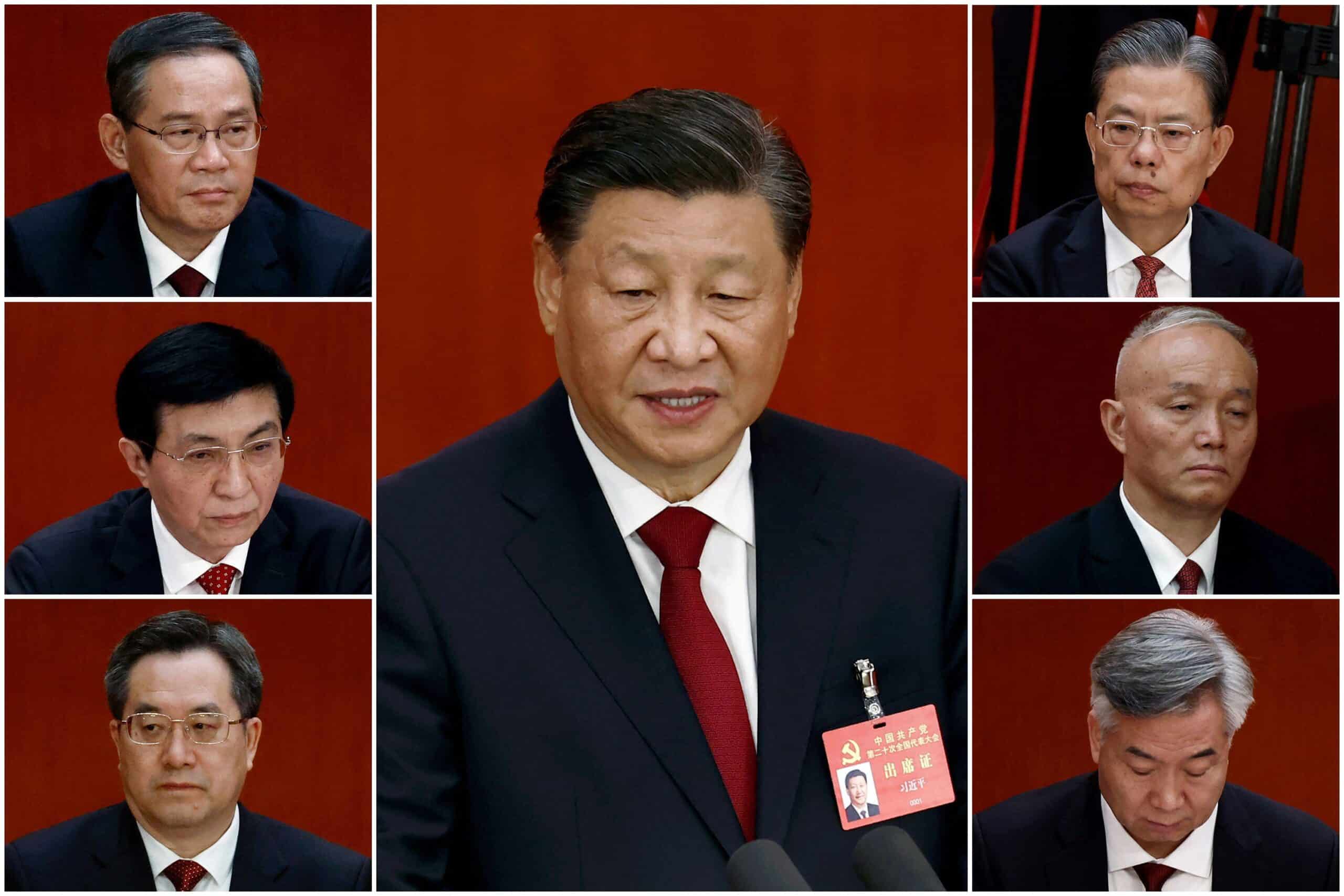
China’s New Leaders and Xi’s Deep Message
It is trendy to compare Xi Jinping with Russian President Vladimir Putin both in terms of their near-absolute power, and in their being surrounded by carefully chosen, steadfastly loyal acolytes. But as Robert L. Kuhn argues in this week’s op-ed, a contrarian thesis is that Xi’s focus on trust and experience will allow China’s new leaders to be more effective and more candid.
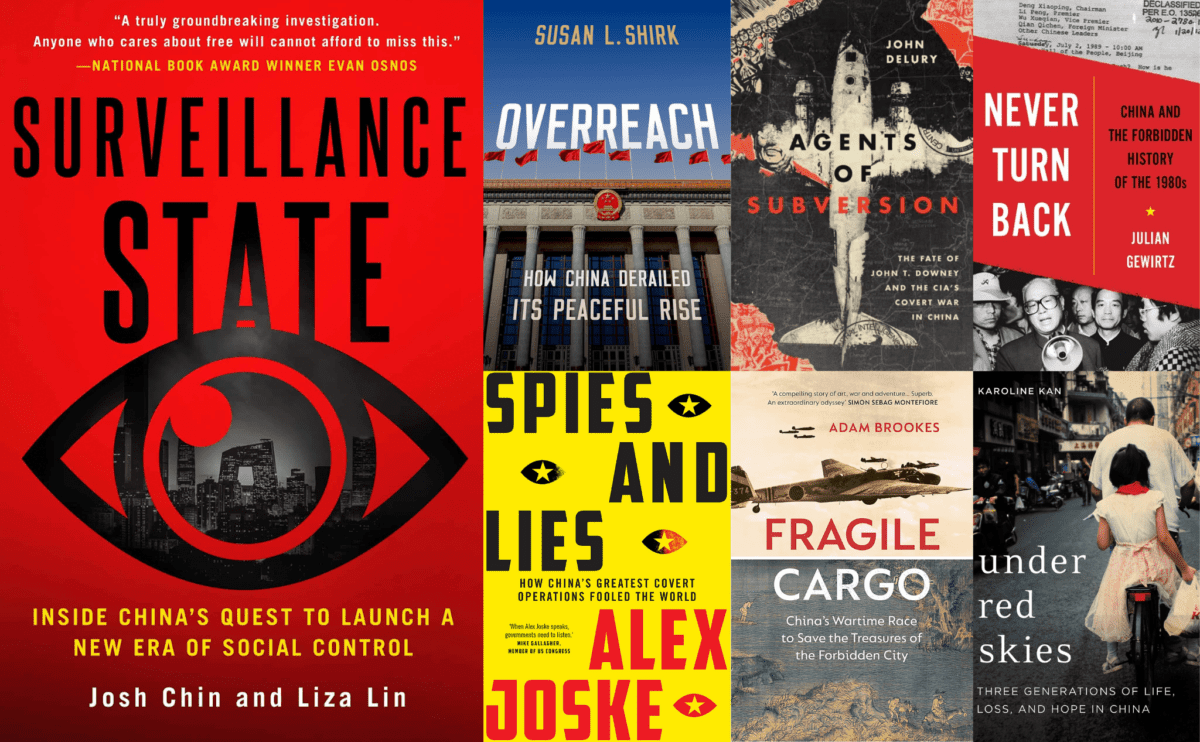
Books for the Xi Jinping Era
Alec Ash rounds up the best new books on China. Topping his recommendation is a reported book on the surveillance state China has become. A close second is a wider lens take on the state of China — and how it has overreached in its ambition — along with an exposé of Beijing’s spy operations abroad, and three history books that put the changes of the present in perspective of the past.


